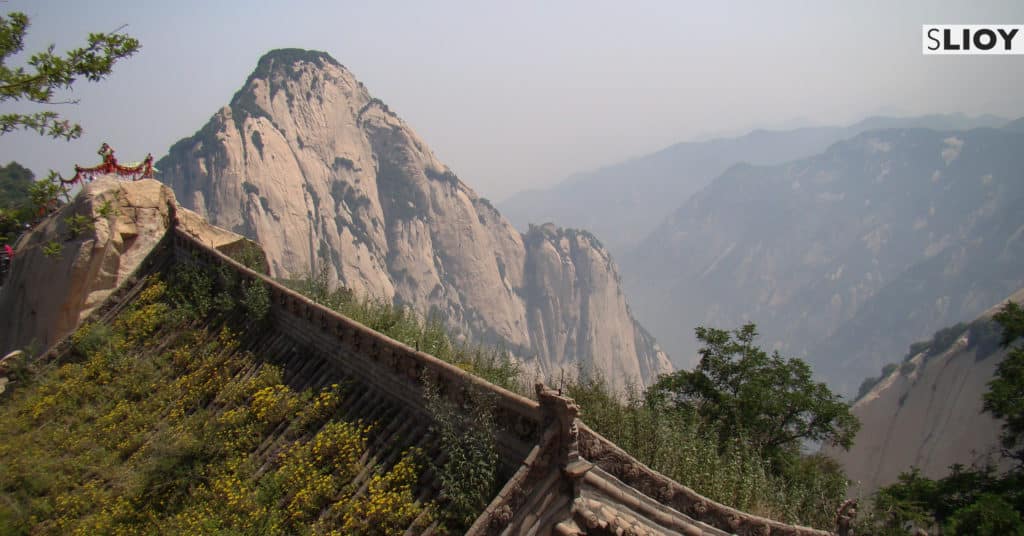China Travel Tips
This month’s ‘Ask GoMad Nomad‘ column on China Travel Tips comes from arguably one of East Asia’s most polarizing travel destinations. Reader Kevin B. is planning a path a bit off the beaten track in China and has some concerns about both the logistics and the difficulty of traveling in more remote regions of the country:
Dear GoMad Nomad,
I’ll be traveling to China soon. My plan is to head a little bit off the beaten track, particularly into the Tibetan areas of Sichuan province. I don’t speak Chinese so I know it’s going to be difficult to travel there. Do you have any China travel tips to help me, especially with booking domestic flights and rail tickets, finding accommodation, and the like?
Thanks!
Kevin B.
Editor in Chief Stephen Bugno wrote a post some years ago on China: the Good, the Bad, and the Ugly that still stands largely true today, and I think for many travelers that have spent time in 中国 the experience is similar. China can definitely be a tough place to travel, though it can equally be an extremely rewarding country. There are beautiful landscapes, incredible cultural heritage, plenty of friendly people, and no end of hidden corners of the country to explore; but to get to them you often have to fight through seas of people, incredible amounts of phlegm, and cigarette smoke at every exhale. Despite the massive size and population of the country most residents and visitors alike stick primarily to the east coast of the country. A trip inland may put the luxuries of city life in Shanghai in the rear-view, but it also opens up the opportunity to experience China’s second-tier cities and the incredible natural scenery that surround some of them.
To address your specific questions, Kevin, my go-to resource for taking trains in China is the website www.cnvol.com. Though the site won’t let you make bookings, it will allow you to check out all the options between two cities as well as to check the price, times, etc. Once you’re ready to book you can print out the train number, city names, seat class, and date (all in Chinese) to make life much easier once you get to the train station to queue for a ticket.
For booking airfare, the CTrip website has almost always been the source I’ve found to have the lowest prices for flights within China. China is a huge country and even the fastest trains take a couple of days to cross it, and that’s not even taking into account the painful multi-day bus rides in areas the train system doesn’t cover. This is the sort of country where even budget travelers will sometimes splurge a bit to save a few days of rough traveling in exchange for paying a bit more on transportation.
The same CTrip site also works for accommodation booking, but selection isn’t always abundant. Budget travelers will also do well with sites like Booking.com to access the full range of cheaper backpacker hostels in the country. In the most remote regions of the country, especially the Tibetan areas of Western Sichuan that Kevin mentioned, it will still sometimes be necessary to show up and ask in person.
More broadly, a few general China travel tips:
- The pollution really is as bad as you hear about sometimes. Anytime you’ll be in major cities and want to do a lot of sightseeing, make sure to keep some indoor options like museums as a backup just in case the air quality is too bad to spend the day outside.
- Eat everything. Sure there are some iffy innards and what westerners might consider non-traditional protein sources but by and large, it’s delicious food with a lot of variety. Even the chicken’s feet, if they’re cooked right, can be good. (Just, you know, avoid the endangered species.) If you’re really into the cuisine, consider taking cooking classes that are offered in many of the tourist hotspots.
- Be prepared for crowds. Like, massive unbelievable crowds. For tourists, this really comes up at train stations and on the metro during rush hour, when you might have to jump in the fray and start throwing your own elbows around to make any headway. Also of note: Chinese grandmas are your queuing nemesis. Keep an eye out or you will be cut in line.
- The national government places restrictions on access to certain websites (most notably GMail and lots of social media platforms) as well as certain topics (think a particular notorious square in Beijing). If it’s important for you to keep connected, consider installing a VPN that works in China during your trip to get around China’s Great Firewall.
- You might want to learn some rudimentary Chinese. One of the biggest indicators of whether travelers really enjoy their time in China or struggle throughout their journeys is whether they ever picked up the basics of the language. English can be sparse on the ground, sometimes, especially in rural and less-touristy areas. Even just basic greetings and the hand signals for counting 1-10 will go a long way.
Finally, a few notes about rural areas and in particular Tibetan regions like the western areas of Sichuan province (and also parts of Yunnan, Qinghai, and Gansu provinces). While these areas are outside of the Tibet Autonomous Region (TAR, or in Mandarin 西藏), their cultures are still very traditionally Tibetan. These areas are not bound by the heavily restrictive rules for visiting places like Lhasa and Mt. Kailash (which are part of the TAR) but will still sometimes be limited in access for foreigners. The best resource to find the state of things on the ground is usually the Land of Snows blog, or sometimes the Lonely Planet Thorn Tree forums. If one bus station tells you they can’t sell you tickets, though (and doubly so if you’re still in Chengdu or one of the major cities far from the Tibetan regions), try again somewhere else or ask for help at your hostel.
Even when they are open these areas are often far less developed than the rest of China, which makes travel and especially long-distance travel pretty hardcore. (See: the 40+ hour bus ride from Chengdu to Daocheng.) However, they’re also home to huge mountains and to cultural areas that some describe as ‘more Tibetan than Tibet’ because of the many restrictions in place within the TAR. Also note that while most people in these areas will know some Mandarin, it is also often appreciated for visitors to learn a few words in Tibetan as well.

Hopefully that’s a start for you, Kevin, and you enjoy your trip. A number of the GoMad Nomad contributors expect to be in these areas over the next few months, so hopefully we’ll run into you out on the road somewhere. Until then, happy travels!
Sincerely,
Stephen Lioy
Looking for answers to your own burning travel questions? Read through the Ask GoMad Nomad archives or send us a message to see if we can help!






Ctrip will now allow you to book train tickets online. You definitely need some mandarin if you are going off the beaten path. You have to remember, a lot of these people speak another dialect as their first language. Mandarin may be a second language. English – Whats that??